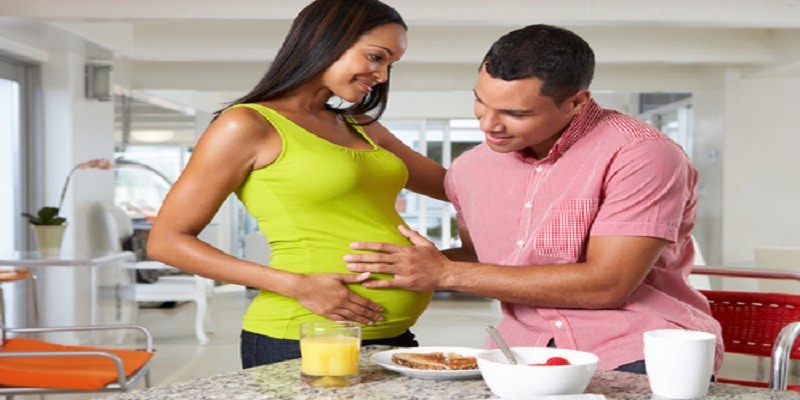Last Updated on January 15, 2025
Yes. Pregnant women can eat gelatin, as it is generally safe and offers various health benefits, including improved skin elasticity and joint health. However, moderation is key, and it’s important to consume only high-quality gelatin from reliable sources to avoid any potential risks.
Gelatin is a common ingredient in many desserts and food products, derived primarily from collagen obtained from various animal parts. Its versatility in culinary applications makes it a frequent topic of inquiry among pregnant women, who often wonder about its safety and nutritional benefits during pregnancy. This article explores whether gelatin is safe to consume during pregnancy, its nutritional content, potential risks, and alternatives.
What is Gelatin?
Gelatin is a protein substance derived from collagen that is extracted from the bones, skin, and connective tissues of animals like cows and pigs. It is commonly used as a gelling agent in cooking, pharmaceuticals, photography, and cosmetic manufacturing. Gelatin dissolves in hot water and gels upon cooling, making it essential for producing jellies, marshmallows, and various other gelatinous desserts.
Nutritional Value of Gelatin
| Nutritional Value | Details |
|---|---|
| Protein | High in protein, essential for tissue repair and muscle growth |
| Amino Acids | Contains amino acids like glycine and proline that support skin, hair, and nail health |
| Collagen | Rich in collagen, beneficial for joint and bone health |
| Calories | Low in calories, making it a suitable light ingredient in diets |
| Minerals | Provides small amounts of minerals such as calcium and phosphorus |
Risks of Eating Gelatin During Pregnancy
| Risks | Details |
|---|---|
| Source Quality | Low-quality sources may contain harmful additives or contaminants |
| Allergic Reactions | Some individuals may experience allergies to animal-derived collagen |
| Hormones and Antibiotics | Animal-derived products may contain residual hormones and antibiotics |
| Digestive Issues | Excessive consumption can lead to digestive discomfort due to its gel-like property |
Safe Ways to Eating Gelatin During Pregnancy
When consuming gelatin during pregnancy, it’s crucial to opt for high-quality, organic sources to minimize exposure to additives and contaminants. Moderation is essential, as with any dietary intake. Pregnant women should consider incorporating gelatin in balanced meals, combining it with fruits or other healthy ingredients to enhance nutritional intake while enjoying its textural properties.
Alternatives to Gelatin During Pregnancy
| Alternatives | Precautions |
|---|---|
| Agar-Agar | Derived from seaweed, ensures vegetarian safety but check for iodine content |
| Pectin | Fruit-based, safe, but consume in moderation due to higher sugar content |
| Guar Gum | Plant-based and safe but use sparingly to avoid gastrointestinal issues |
| Carrageenan | Seaweed-derived; some types may not be recommended for frequent consumption |
| Xanthan Gum | Fermented sugar alternative, generally safe in small amounts |
Experts Tips
- Consult Your Doctor: Always consult with a healthcare provider before making dietary changes during pregnancy.
- Quality Over Quantity: Opt for premium, organic gelatin to avoid ingesting unwanted additives.
- Balance Your Diet: Incorporate gelatin as part of a balanced diet to maximize its benefits without overconsumption.
FAQs
Is gelatin high in calories?
Gelatin is low in calories, making it a suitable option for maintaining a balanced diet during pregnancy.
Can gelatin improve skin health during pregnancy?
Yes, due to its high collagen content, gelatin can help maintain skin elasticity and reduce stretch marks.
Are there vegetarian alternatives to gelatin?
Vegetarian options like agar-agar and pectin are excellent alternatives to animal-derived gelatin.
How much gelatin is safe during pregnancy?
Moderate consumption, such as adding it to a dessert or two per week, is considered safe.
Can gelatin cause any pregnancy complications?
When sourced from reputable suppliers, gelatin does not typically cause complications but check with a healthcare provider.
Conclusion
While gelatin is generally considered safe for pregnant women, it is vital to prioritize high-quality sources and maintain moderation. Its nutritional benefits can be advantageous during pregnancy, supporting skin, hair, and joint health. However, being aware of the potential risks and considering alternatives can help manage its consumption effectively, ensuring both safety and health for the mother and the developing baby.

